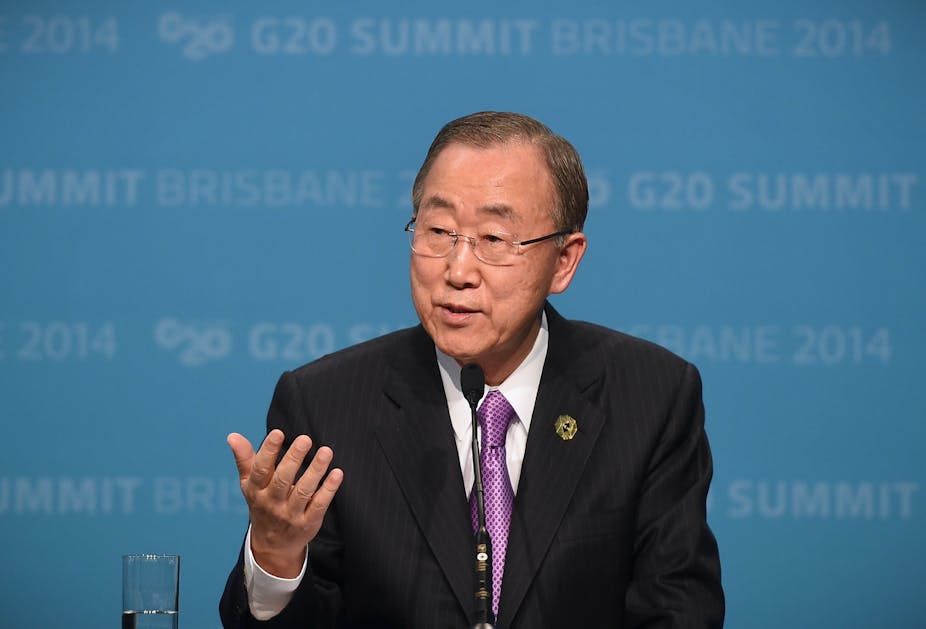US president Barack Obama has pledged US$3 billion to the Green Climate Fund (GCF), as United Nations Secretary-General Ban Ki-moon urged other G20 nations to make contributions to it.
The American announcement pushes climate change further centre stage at the Brisbane G20 Leaders’ Summit, which started today. The GCF is aimed at supporting projects in developing countries to reduce carbon emissions and strengthen their ability to deal with climate change.
In a news conference in Brisbane, Ban said the world looked “to the G20 to lead on climate finance. I urge G20 leaders to make ambitious pledges toward the capitalisation of the Green Climate Fund.”
A statement from the White House said the US joined nations including Mexico, Korea, Germany, France, Denmark, Norway and Switzerland that had already pledged financial support to “this vital new global effort” and more countries were expected to pledge soon.
“By financing investments that helped countries reduce carbon pollution and strengthen resilience to climate change, the GCF will help leverage public and private finance to avoid some of the most catastrophic risks of climate change,” the statement said.
The latest American initiative follows the US-China deal, announced by Obama and Chinese President Xi Jinping in Beijing earlier this week on the two countries’ commitments for emissions reductions post-2020.
Australia initially resisted discussion of climate change at the G20, but then had to concede that it would be canvassed. However, the Australian government has sought to cast it as only a minor part of the conference, which it has wanted to keep focused on economic issues.
“If other countries want to raise other subjects they’re entirely welcome to do so but my focus and I believe the principal focus of the conference will be on growth and jobs,” Australian prime minister Tony Abbott said this week.
Ban said he had been briefed by his sherpa that the leaders were “actively discussing” the issue of climate change.
This was “the defining issue of our times, therefore it’s only natural that G20 leaders should focus much more on this as part of making this world sustainable in three dimensions – economic, social and environmental”.
He said he understood that discussions were “going on well and I’m sure that there will be a reflection of strong commitment by the leaders of G20 on climate change”.
Ban also emphasised the importance of the Ebola crisis, saying the international response needed to be intensified. He particularly thanked the Australian government for being one of the first to contribute to the UN trust fund set up to combat the disease and for its support of a 100 bed Ebola centre in Sierra Leone.
He said that apart from treating Ebola cases, “we must also address the secondary impacts on health care, education and soaring food prices caused by the disruption in farming. This could provoke a crisis affecting one million people across the region”.
He said the international community have been panicked by the disease “but we should guard against this kind of panic”. Health workers who were giving their services should not be discriminated against and quarantined unnecessarily.
“Of course if one has a symptom one should be treated immediately,” he said, but those without symptoms “should be treated as normal people when they are returning from their service.
"That’s my urgent and strong appeal to world leaders. Otherwise it will be extremely hard to address this Ebola crisis.”
The Australian government has said that any Australian workers at the Sierra Leone hospital should have to serve a 21-day quarantine period before returning to Australia.
On the issue of growth and jobs, Ban said that the determination of G20 leaders to raise growth by 2% in the next five years was “a step in the right direction, but the quality of growth is just as important as is the quantity.
"We must pursue an agenda that advances sustainability, addresses inequalities and generates decent jobs, especially for young people.”

